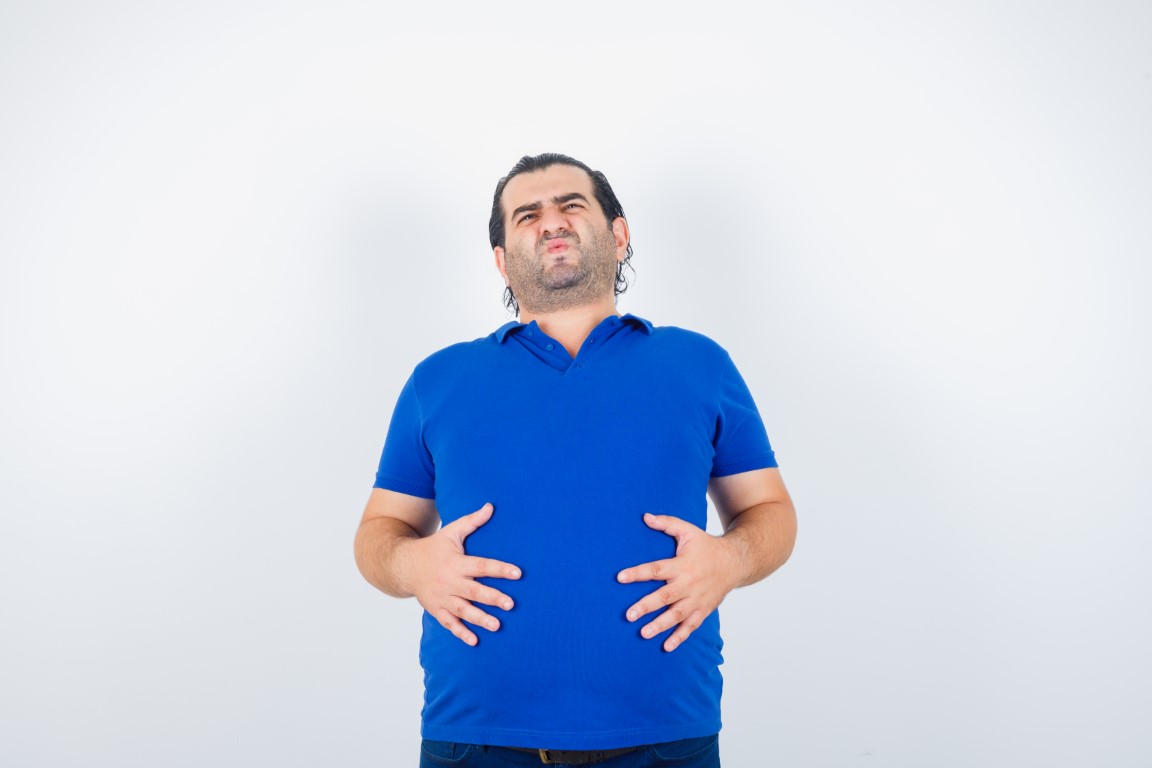Gastric Sleeve Surgery (Stomach Reduction)
In Gastric Sleeve Surgery (Sleeve Gastrectomy), also known as stomach reduction surgery, the area called the greater curvature (long and outer side) of the stomach is removed and the stomach is transformed into a tube shape.
- Latest Technology
- Expert team
- Specialist Doctor Staff
- 20 Years of Sectoral Experience

Gastric sleeve surgery is known as one of the treatment methods preferred by and suitable for obesity patients. Although it is one of the most effective treatment methods for obesity, sleeve gastrectomy ( stomach reduction ) surgery can also be preferredby people who are overweight even though they are not severely obese in terms of body mass index
What is Gastric Sleeve Surgery (Stomach Reduction)?
Gastric sleeve surgery is an operation that allows the stomach to become a thin and long tube. During gastric sleeve surgery, approximately 80% of the stomach is removed. This causes the stomach to restrict food intake. The person’s appetite also decreases, thus weight loss is achieved. However, it is worth noting that gastric sleeve surgery is not a weight loss method. This method is used to treat obesity.
How is Gastric Sleeve Surgery Performed?
There are several stages to performing gastric sleeve surgery. Stomach reduction surgery is performed under general anesthesia, so the patient does not feel any pain during the operation. Approximately 80% of the stomach is removed by the closed surgery method.
Gastric Sleeve Surgery (Stomach Reduction) Prices
Gastric sleeve surgery price is among the most frequently asked questions about stomach reduction surgery, which is one of the most preferred surgeries of recent years. However, it is not possible and not correct to give fixed information about gastric sleeve surgery prices .
Many different factors, such as the patient’s condition, the techniques to be applied during the operation and the factors to be considered, cause prices to vary. Since sleeve gastrectomy surgery is a completely personalized operation that must be performed with great care, sleeve gastrectomy prices also vary.

Leakage Symptoms After Gastric Sleeve Surgery
After the stomach reduction operation, the team performing the surgery must make necessary checks to see if there is any leakage. If leakage occurs after sleeve gastrectomy surgery, it is necessary to see a specialist immediately.
One of the symptoms of leakage after stomach reduction surgery is pain in the abdominal area that is above the pain level. Persistent, persistent pain in the abdominal area may indicate a leak. On the other hand, sudden ignitions may also be signals indicating a leak. When these symptoms occur, it is necessary to see the relevant specialist without delay.
Process Before and After Gastric Reduction Surgery
Those who have gastric sleeve surgery often wonder what awaits them before and after surgery. Factors to consider before and after stomach reduction surgery should not be ignored. The instructions given by the doctor must be followed by the patient before the surgery.
The patient must quit smoking and drinking alcohol for a certain period of time before the surgery. He should be careful about what he eats, and if there is a diet program given to him, he should follow it. It would be beneficial to lose as much weight as possible before the surgery. Before gastric sleeve surgery, routine surgical examinations are performed and its functions are evaluated and it is decided whether the patient is suitable for the operation.
In the post-operative period, the patient’s establishment of a routine in line with the instructions he receives from the doctor will positively affect the process of regaining his health. He/she should continue to eat right and stay away from smoking and alcohol. Establishing a regular life and nutrition routine can be beneficial in creating longer-lasting and satisfying results.
Nutrition After Gastric Sleeve Surgery
During the nutritional period after gastric sleeve gastrectomy, it is necessary to get support from a dietician who is an expert in the field. The diet list is a list that must be planned individually.
You will be fed liquid for a while after the operation. It is not recommended to consume any solid food in the initial stages because the stomach does not have the potential to handle solid foods. However, after the period specified by the doctor, it is considered normal to consume pureed foods. This period is also called the tube stomach puree period.
After endoscopic stomach reduction surgery, the calorie and fat ratios of the foods consumed must be calculated, otherwise weight gain may occur again. Patients who have undergone gastric sleeve surgery must definitely switch to a healthy eating habit. This surgery is not used for losing weight, but for the treatment of obesity. For this reason, it is necessary to pay attention to the diet after surgery.

How to Lose Weight After Gastric Sleeve Surgery?
The amount of weight loss after sleeve gastrectomy surgery varies from patient to patient. While some people experience faster and higher weight loss, some have a lower amount. Various factors, such as eating habits and removal of a large part of the stomach, ensure that the amount of food consumed by the patient is much less than in previous times. In addition, since it is a surgery that causes loss of appetite, the amount eaten at meals and the speed of eating decreases.
Those who have stomach reduction surgery can make the effects of the surgery permanent by following their specialist’s instructions and adopting a healthy lifestyle. It would not be wrong to say that there are factors that patients must pay attention to in order to lose their desired weight.
How Many Weight Do I Need to Wear for Stomach Reduction Surgery?
Gastric sleeve revision surgery , which is a treatment method for those who are severely obese, is a surgery that can be performed on patients over a certain weight limit. Conditions for sleeve gastrectomy surgery include factors such as a diagnosis of obesity or body mass index being above a certain level.
When Does the Stomach Heal After Gastric Sleeve Surgery?
Nutrition after gastric sleeve surgery is very important in order to make the healing process of the stomach faster and healthier. If you eat in accordance with the list given to you by the doctor and dietitian and pay attention to the factors recommended by the specialist, the internal stitches in the stomach will heal within 15 days. However, the complete healing process will continue for a while.
From what age can gastric sleeve surgery be performed?
It has become a subject frequently researched by people because it is among the operations that produce very effective results before and after the gastric sleeve and create a visible change in patients. Gastric sleeve surgery, which can be preferred by people facing obesity, is an operation that can be performed for patients between the ages of 18 and 65. However, in order for the surgery to be performed, the patient’s health condition must be suitable for the operation.
The plateau period, also known as the cessation of weight loss after sleeve gastrectomy surgery, is the process that shows that you are in energy balance. It is possible for patients to experience this period during the weight loss phase after sleeve gastrectomy surgery. To eliminate this period, it is necessary to speed up the metabolism again. At this point, a decision can be made with the help of an expert as to what can be done.
Frequently Asked Questions About Gastric Sleeve Surgery
Meet Our Doctors
Table of ContentsToggle Table of ContentToggle
- Gastric Sleeve Surgery (Stomach Reduction)
- What is Gastric Sleeve Surgery (Stomach Reduction)?
- How is Gastric Sleeve Surgery Performed?
- Gastric Sleeve Surgery (Stomach Reduction) Prices
- Leakage Symptoms After Gastric Sleeve Surgery
- Process Before and After Gastric Reduction Surgery
- How Many Weight Do I Need to Wear for Stomach Reduction Surgery?
- When Does the Stomach Heal After Gastric Sleeve Surgery?
- From what age can gastric sleeve surgery be performed?
Call Me Back

